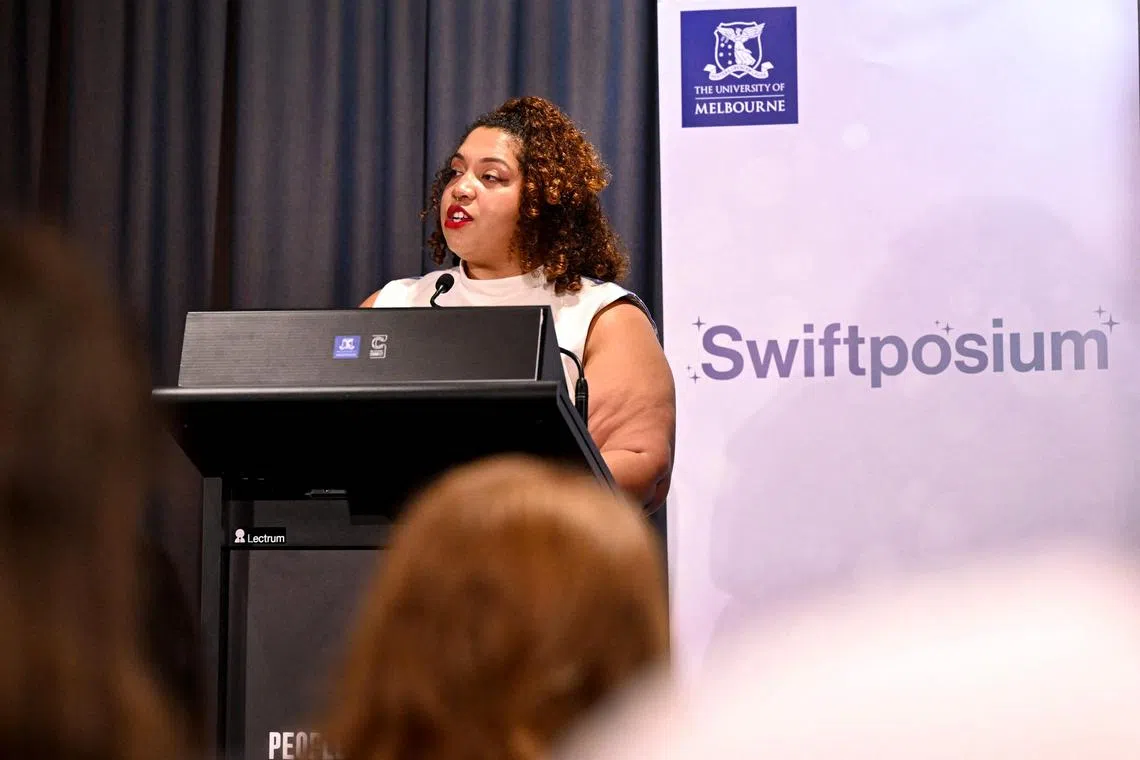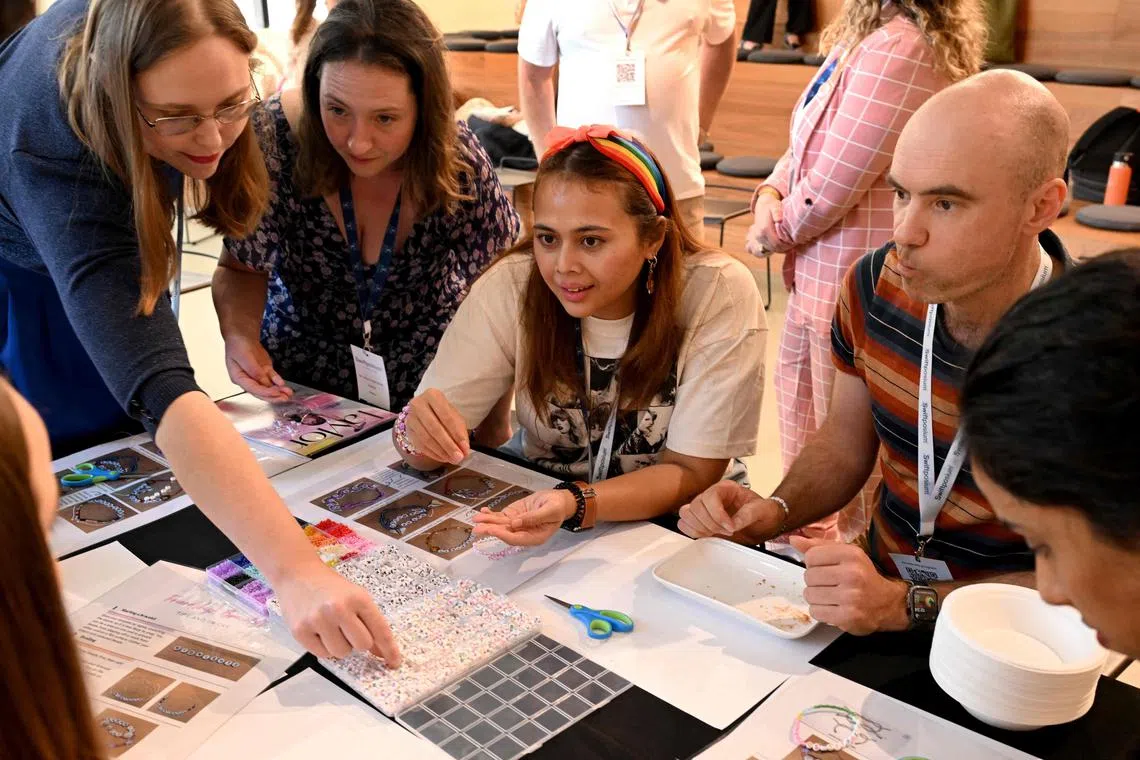Academics hold ‘Swiftposium’ as Taylor Swift heads to Australia
Sign up now: Get ST's newsletters delivered to your inbox

Rolling Stone writer Brittany Spanos speaks during the Taylor Swift "Swiftposium" at the University of Melbourne on Feb 12.
PHOTO: AFP
Follow topic:
MELBOURNE – Whether it is her relatable pop songs, connection with millions of fans worldwide or role as a feminist icon, the power of Taylor Swift is now too large for academics to ignore.
So much so that the University of Melbourne held a “Swiftposium” on Feb 12 to discuss the Grammy-winning artiste’s influence across a range of disciplines before The Eras Tour arrives in Melbourne on Feb 16.
“It’s just so incredible to see how many different ways you can unpack Taylor Alison Swift,” said Dr Jennifer Beckett, a senior lecturer in media and communications at University of Melbourne.
The billionaire American is only 34, but can boost the economy of a city just by turning up.
“She’s amassed such an enormous and, I think, unprecedented amount of power and influence in the industry. Economically, her business models are intense,” Dr Beckett said.
“There’s a lot that we can learn from her, but we also need to think critically.
“Do we need to be worried about some aspects of it? Should she be more vocal in her support for certain groups of people or issues? Is that something we should be expecting now that she has this level of power?” she added.
Swift’s role as poet, feminist icon and canny businesswoman was also discussed. The Melbourne symposium echoed a 2023 course at Belgium’s Ghent University that examined whether Swift is “a literary genius”.
One of the quirkier elements to emerge from the Melbourne conference was that academics believed the beats of her songs could also help in the resuscitation of hearts.
The Bee Gees song Stayin’ Alive (1977) has been taught for years as a rhythm to follow in cardio-pulmonary resuscitation (CPR), and academics have now identified Swift’s songs that hit the right beats a minute and may better engage younger generations.
“You used to be taught CPR to Stayin’ Alive, but that’s just not vibing with Gen Z and millennials,” Dr Beckett said.
“Swiftonomics” – examining the economic effect of Swift’s tour on cities, urban planning, public transport, restaurants and hotels – was also being discussed.
Sociologist Georgia Carroll, a keynote speaker, studied how Swift encourages fans to splurge on her merchandise.
“She rewards fans that spend money with attention... It’s very trained and controlled,” she said.

Delegates take part in a bracelet-making event during the Taylor Swift “Swiftposium” at the University of Melbourne on Feb 12.
PHOTO: AFP
Fans that critically examine Swift are also shunned of attention, Dr Carroll said, yet they remain steadfastly loyal.
“Fans view her a lot more as the friend next door than they do as a billionaire superpower, which is the reality of what she is,” Dr Carroll said.
Brittany Spanos, another Swiftposium speaker and a writer at American music magazine Rolling Stone, said Swift has excelled at engaging with fans on social media to “make them feel very seen and connected with her”.
“She’s been one of the smartest artistes in terms of using that as a marketing tool,” Spanos said.
“It’s been a huge part of her identity and how she connects with people.” AFP

